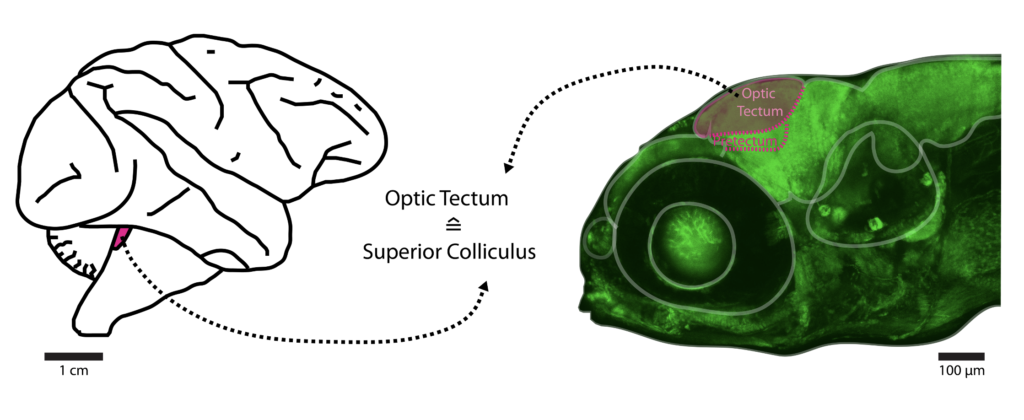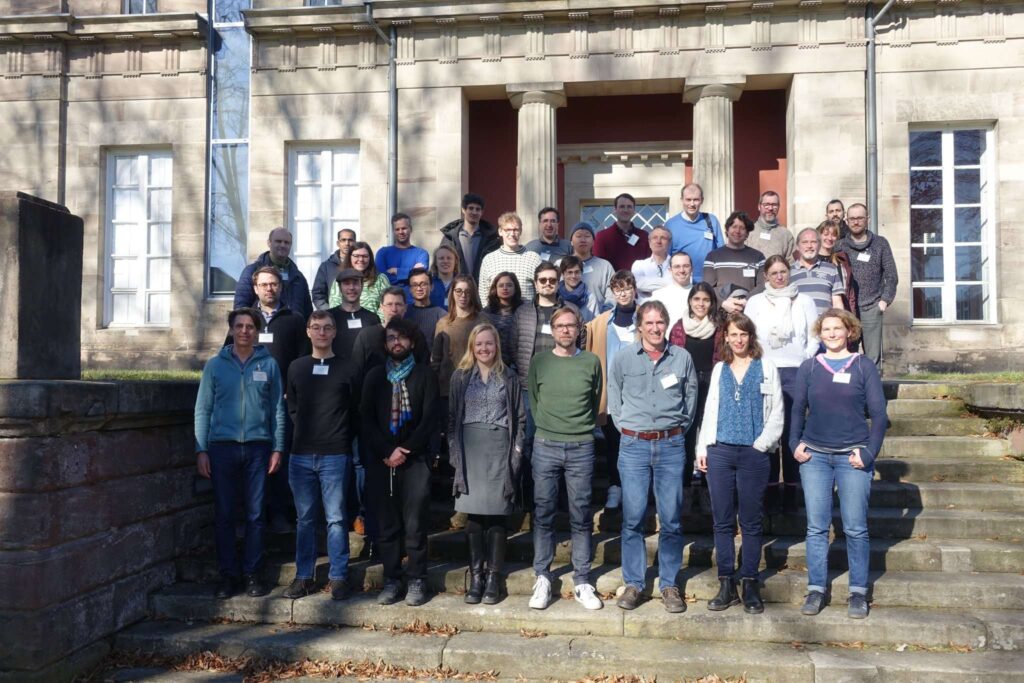Our lab participated in the March 2023 retreat of the DFG-funded Special Priority Programme (SPP) on Evolutionary Optimization of Neuronal Processing.
The program of the retreat was very rich and diverse, covering a wide range of species, from crustaceans to insects, and from fish to rodents and primates. This was a very enriching experience for everyone involved, with an opportunity to learn a very great deal in the span of only 3 days!

Our lab’s presence in the retreat was part of our tandem project with the laboratory of Aristides Arrenberg in the consortium. In this collaborative project, we are trying to understand the properties of saccadic suppression in two very different species, with a focus on a common brain structure between them (the optic tectum in the fish and the superior colliculus in primates).

Given the very large change in brain size and number of neurons between the zebrafish and primates, we believe that we are in a great position to understand how fundamental computations of saccadic suppression can be optimized with limited neuronal resources in multiple species.
The results so far are very intriguing, with both commonalities and differences in the larval zebrafish with respect to our recent studies in saccadic suppression in other mammalian species including humans (e.g. here, here, and here). We are very excited to continue this comparative neuroscientific approach!
The event took place in the historical observatory of the beautiful city of Göttingen, and it was very nice to have in-person interactions in this community once again after the pandemic.



